By our count, we covered over 75 Jewish books featured on Alma during the Jewish year of 5781. That’s a lot of books — but we are a people of the book, after all. This year’s Almas in Jewish books are awarded to 17 different books representing a diversity of Jewish fiction, nonfiction and special interest titles. There’s the only tie we’re giving (we couldn’t pick!) for best Jewish fiction, alongside awards for everything from best Jewish short stories to best Jewish biography. If you want to purchase anything from this list, you can get them at Bookshop, a platform supporting independent bookstores. As we celebrate the Jewish new year, we wish you a sweet new year filled with lots of good books.
BEST OF THE BEST
The Best Jewish Fiction
This is the only tie in the Almas this year, and it’s only because we loved both of these books so much. “Monkey Boy” by Francisco Goldman and “Milk Fed” by Melissa Broder were both remarkable works of Jewish fiction published this year — and they couldn’t be more different.
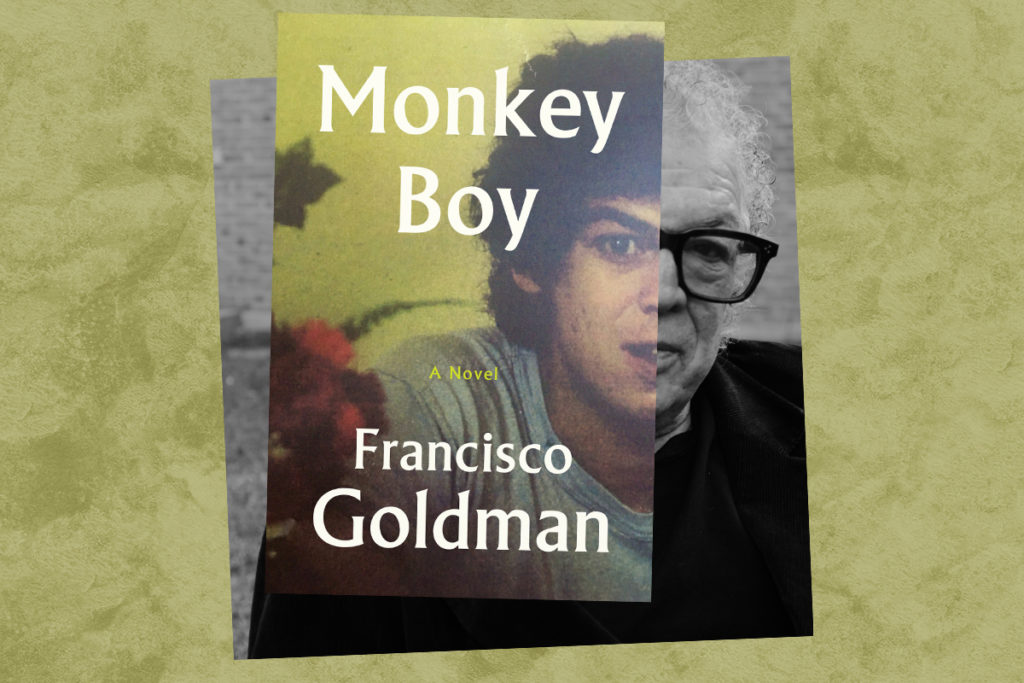
Goldman’s “Monkey Boy” is an autobiographical novel, telling the tale of Francisco Goldberg, a man with a Jewish father and a Guatemalan Catholic mother, very similar to Goldman himself. The story follows Goldberg on his return home to Boston to visit his mother in a nursing home — which brings up reflections on his past, on love, and on his complicated identity. “Nobody is really half this, half that. People are who they are, entirely, for better or worse, themselves. Fully Jewish, fully Catholic, that’s what the Francisco of the novel discovers,” Goldman told Alma. “Monkey Boy” is a moving story on what it means to Jewish and Catholic, what it means to have immigrant parents from vastly different parts of the world, and how a Guatemalan Jewish kid in a white Boston suburb finds his way in the world.
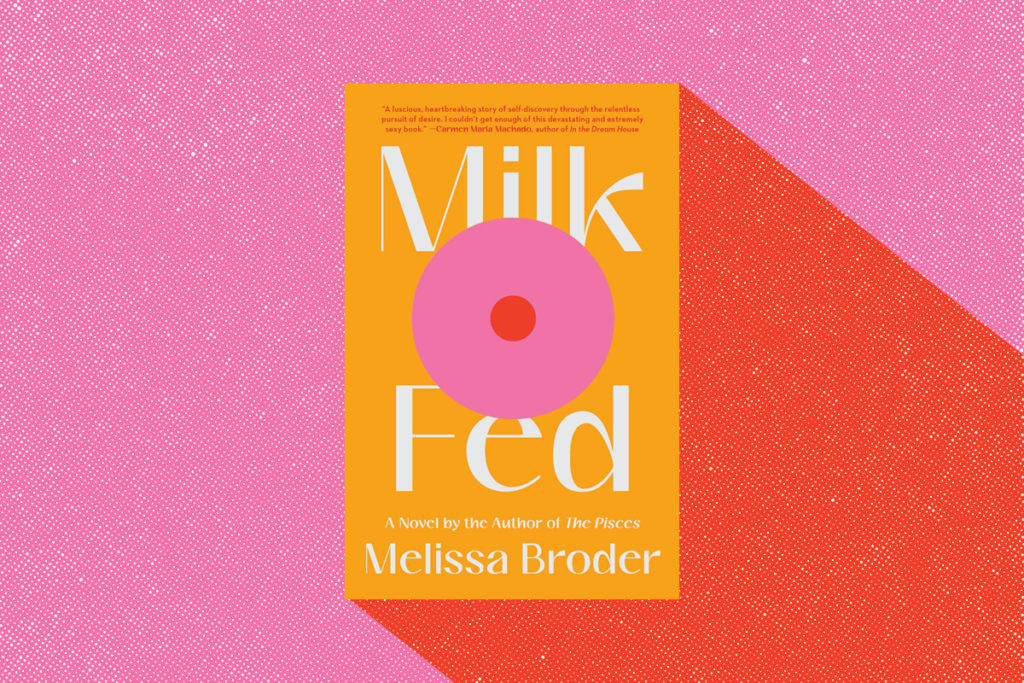
The co-winner of Best Jewish Fiction is Melissa Broder’s “Milk Fed,” the tale of Rachel, a 24-year-old struggling comedian who falls in love with Miriam, an unapologetic zaftig (in a positive way) Orthodox Jewish woman who works at a frozen yogurt shop Rachel frequents. As Kelsey Grashoff wrote in Alma, “While she makes some serious missteps with Miriam and doesn’t quite understand or respect all the nuances of observant Jewish life or Miriam’s boundaries, Rachel comes to appreciate and develop her own Judaism, taking the pieces that are most meaningful to her and allowing them to shape her view on the world.” It’s a moving, funny and beautiful story — of love, queerness, finding oneself, and recovering from disordered eating. And golems!
Get Monkey Boy here and Milk Fed here.
Bonus: an acceptance speech from Francisco Goldman!
The Best Jewish Nonfiction
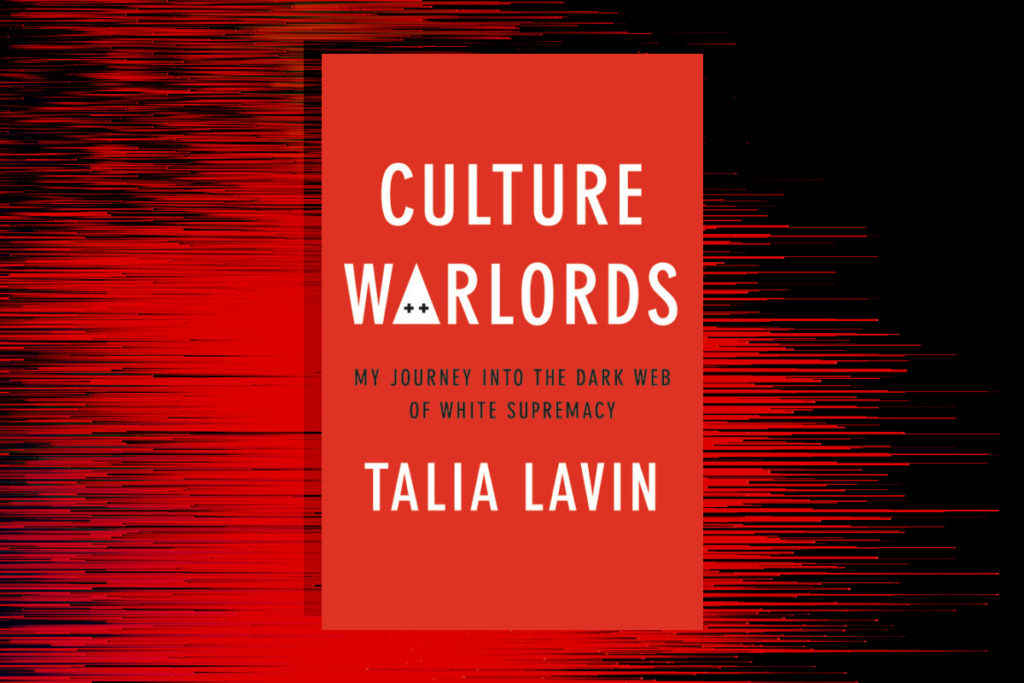
“When I became the target of the far right, I felt my identity sort of burning inside of me,” journalist Talia Lavin told Alma. “As a Jewish woman, I was the brunt of all this antisemitism and misogyny. The misogyny is very overt — the threats and abuses are incredibly sexualized. It’s very keyed to my appearance. It’s really hard to disentangle these things, but because of my identity, I was targeted with a viciousness. And because of that viciousness, I decided to turn around and dive in. Not to disengage, but rather to turn towards the darkness — and to fight it.”
Her book, “Culture Warlords: My Journey Into the Dark Web of White Supremacy,” documents her dive into the most hateful corners of the internet and what she found there. It’s an impressive read that combines both the story of her own experience in the alt-right’s chatrooms and the story of modern-day white supremacy in America. “Culture Warlords” is critical to understanding modern America, particularly how people — white men, mainly — get radicalized. Ultimately, Lavin concludes, “The hope is in the people.”
Get Culture Warlords: My Journey Into the Dark Web of White Supremacy here.
The Best Jewish Memoir
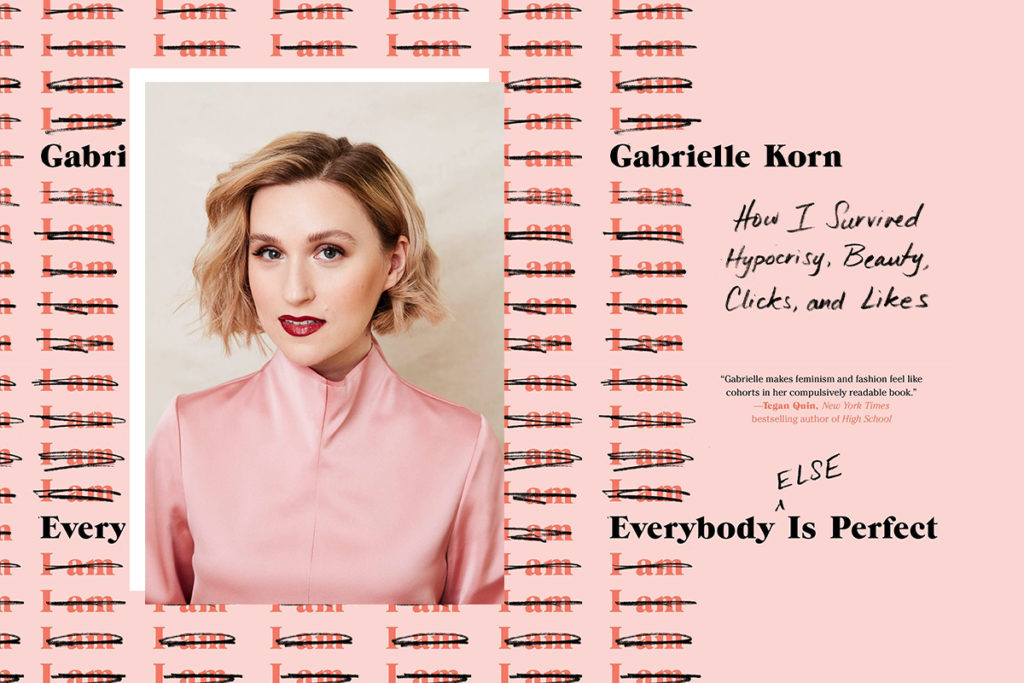
When she was 28, Gabrielle Korn was promoted to editor-in-chief of Nylon magazine, the same day the print edition of the magazine folded. She served as EIC for two years, being the first out lesbian woman on the top of the masthead, and was “younger and gayer than all the female EICs at competing publications in New York City.” She has since left the world of media and fashion, joining Netflix. Her memoir, “Everybody (Else) Is Perfect: How I Survived Hypocrisy, Beauty, Clicks, and Likes,” is the story of her journey in media, but also of her own journey to find herself as a person. Throughout the book, she opens up about her struggles with disordered eating and how the body positivity movement isn’t always so positive. As Korn told Alma, “I was so afraid to talk to anybody about the feelings I was having about my body because I wanted so badly to be that picture perfect millennial who has self-love and looks in the mirror and sings a Lizzo song. And, I wasn’t. And I don’t think any of us are.” That’s why “Everybody (Else) Is Perfect” matters: It’s a reminder that everyone, no matter where you work or who you are, is dealing with the same problems.
Get Everybody (Else) Is Perfect here.
The Best Jewish YA
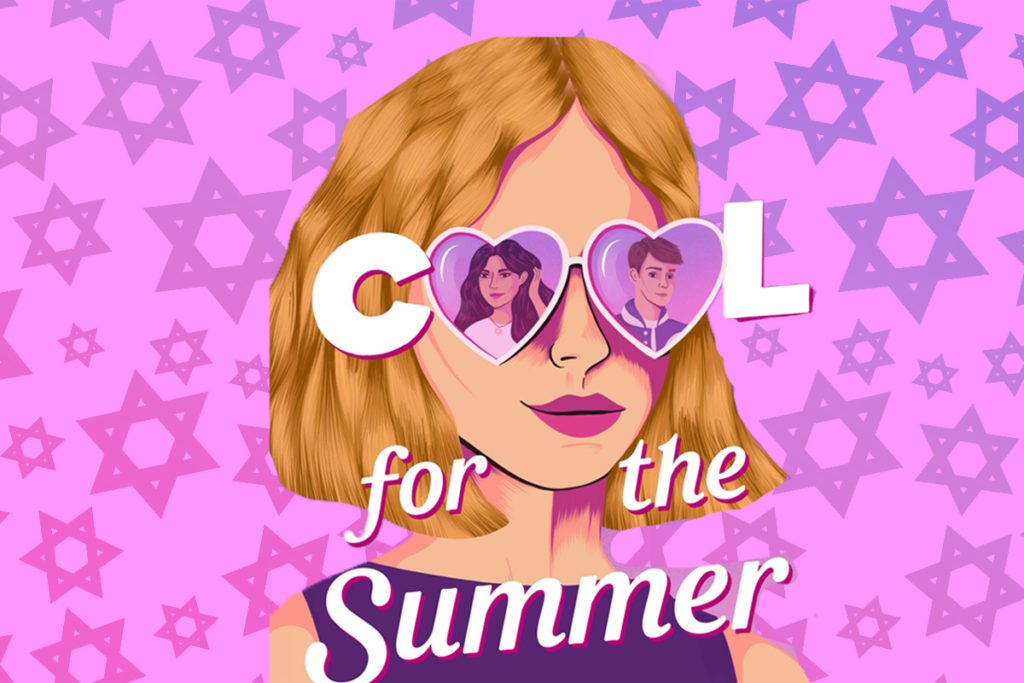
We cannot stop talking about Dahlia Adler’s “Cool for the Summer,” because honestly, it’s just that good. “Cool for the Summer” is a YA Jewish bisexual love triangle featuring Lara, who is starting her senior year of high school. The guy of her dreams, Chase, is finally into her. But then Jasmine, her summer fling who just moved into town, shows up (think “Grease,” but gay and way less problematic?). Who does she go for? As Shelly Jay Shore wrote in Alma, the book is a gamechanger for queer Jewish teens. “Reading ‘Cool for the Summer’ felt like a revolution — like coming to a new place in representation. While queer characters have had an explosion of representation in young adult fiction, as have Jewish characters, a bisexual Jewish romance focusing on two girls always seemed like such a niche market… To see a book not just with bi Jewish representation but with multiple Jewish characters who relate to Judaism in different ways feels huge.” A clear winner of the best Jewish YA of the year.
The Best Jewish Poetry
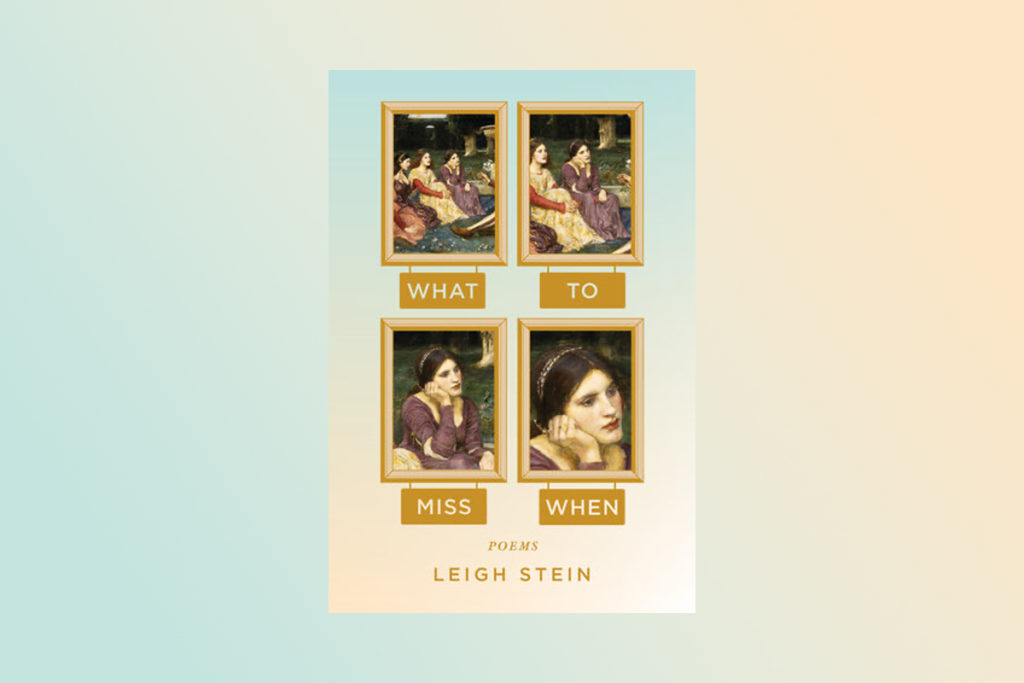
Leigh Stein’s poetry collection, “What to Miss When,” was written in the early weeks of the COVID-19 pandemic. Stein tweeted that the collection “is the most Jewish book I’ve ever written. In lockdown, it was impossible for me not to think about what those who came before me had to endure and survive. It put the unfolding catastrophe in context. We had to be resilient.” Her poems touch on pop culture, the internet, morality and, of course, Jewishness, as she tries to make sense of what it means to quarantine during a pandemic. One favorite is “Incurable Chatterbox,” which reflects on Anne Frank’s diaries, beginning:
My oeuvre of sixteen thousand tweets
now reads like Anne’s diary before hiding:
my weak marks in algebra, my crush calling
on the phone, the last of the fancy biscuits,
fascism as backdrop for my juvenilia.
THE BEST FICTION
The Best Jewish Fiction Debut
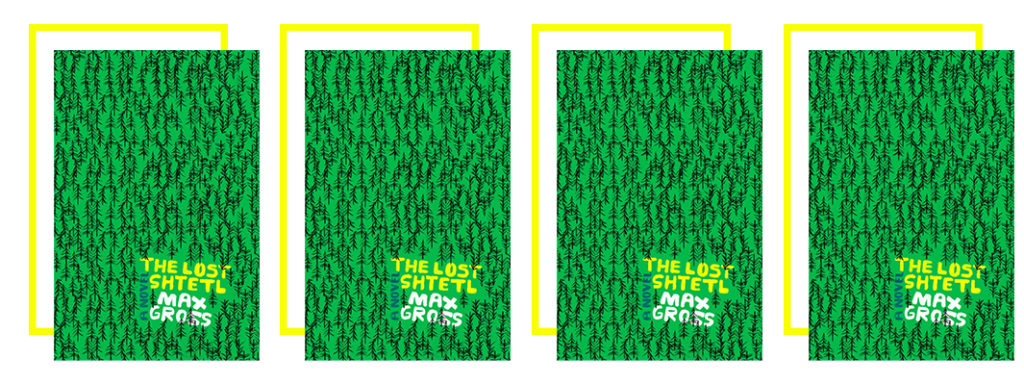
“The Lost Shtetl” is a super Jewish book that tells the story of a shtetl that has been lost in time. In the fictional Kreskol, villagers have no idea what happened in the 20th century: They missed the Holocaust, the establishment of the state of Israel, the invention of wifi … everything. When two villagers end up leaving Kreskol for different reasons, modernity arrives, and what follows is a story of Jewish resilience, faith, assimilation and antisemitism.
“My personal Jewish identity is most closely related to the sweep of Jewish history. There’s a reason that so many Jews become writers; we’re attracted to a story that takes so many crazed turns,” Gross told Alma. “The lows would be meaningless if not for the highs alongside them. It’s not just pogroms and the Shoah — it’s Einstein and Kafka and Ruth Bader Ginsberg. As a writer, to me, being a Jew is being part of a great novel.” With a fantastic debut, Gross is for sure welcomed into a great tradition of Jewish novelists.
The Best Jewish Fantasy
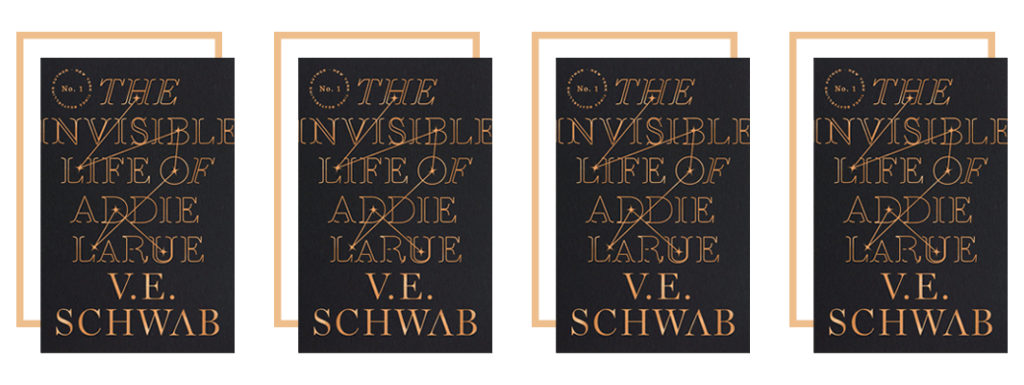
V.E. Schwab is perhaps best known for her “Shades of Magic” series, but we’re here to award “The Invisible Life of Addie LaRue,” as a fantastic work of fantasy. While Schwab does not identify as Jewish (or any religion), this is a Jewish fantasy novel for its main love interest: Henry Strauss, a Jewish bookseller. The plot, briefly: Addie LaRue is a young woman in 1700s rural France who makes a deal with a god of darkness, which promises her freedom and being tied to no one — but cursed with the fact that everyone she meets will forget her. Yet, one day, Addie meets Henry. When she returns the next day to the bookstore, he remembers her. Henry is the first person to remember her in 300 years, and so begins their tale. It’s a love story that spans centuries, and one very award-worthy.
Get The Invisible Life of Addie LaRue here.
The Best Jewish Romance
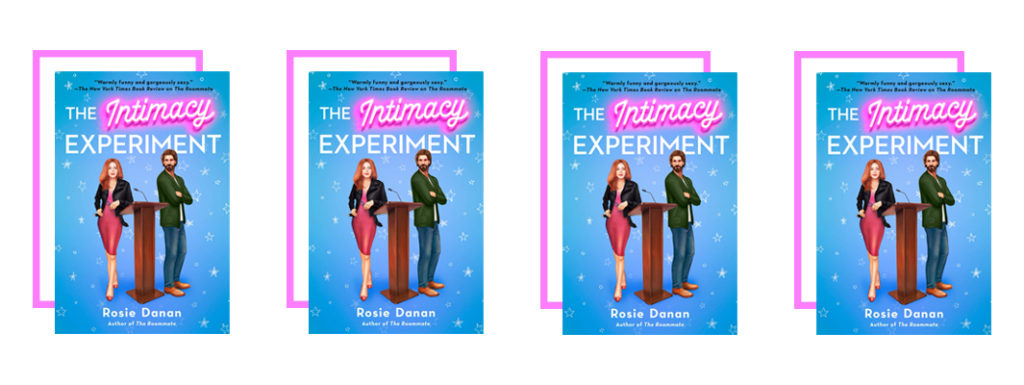
While we’re talking luuuurve, let’s talk about the best Jewish romance of the year: Rosie Danan’s “The Intimacy Experiment.” The romance novel is the tale of Naomi Grant, bisexual Jewish sex worker turned co-founder of a sex-positive start-up, and Rabbi Ethan Cohen, a very attractive rabbi struggling to keep his synagogue afloat. Romance! Hot rabbis! Bisexual sex educators! Jewish representation!! What more could you want in a Jewish romance novel?! “The Intimacy Experiment,” too, gets into the stress of Jewish institutions trying to attract millennials/younger generations — we truly love a romance that is swoon-worthy and full of meaningful commentary. Danan tweeted that the book “is a celebration of Jewish love and Jewish friendship, Jewish families, Jewish traditions and Jewish food. There are queer Jews and Jews trying to figure out what their Jewish identity means and how it can evolve.” We’re just waiting on the movie adaptation (may we suggest Brett Goldstein as Rabbi Ethan?). Hollywood, can you hear us?
Get The Intimacy Experiment here.
The Best Jewish Short Story Collection
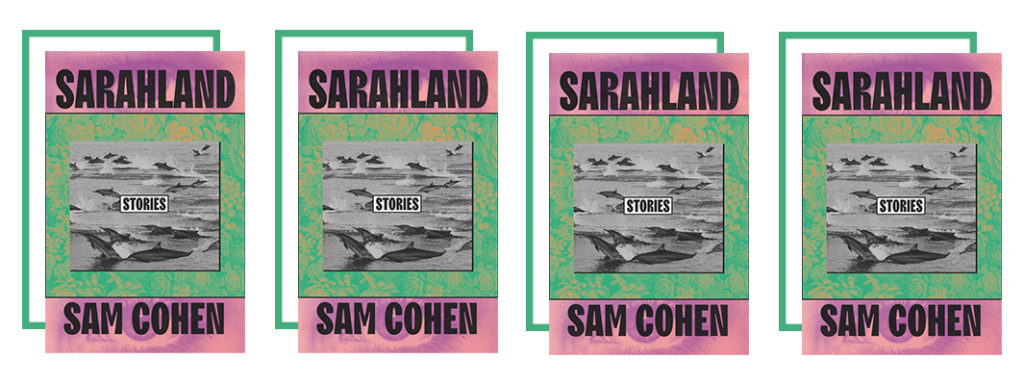
Sam Cohen’s inventive short story collection, “Sarahland,” features 10 stories centered on different women named Sarah. There’s a Jewish college student named Sarah dealing with hook-up culture and sexual assault. There’s Sarah of the Bible, who, in Cohen’s writing, is a trans woman who sleeps with Hagar to become the real parents of Ishmael. There’s a “Buffy”-loving Sarah who writes fan-fiction; there’s an aging lesbian Sarah who literally becomes a tree. Each Sarah is told through a queer, Jewish lens, with tenderness and care.
“For most of my life, deep questioning of gender and representation of non-normative sexualities were pretty fringe discussions,” Cohen told Alma. “For me, it’s really amazing to put this book out at a time where public discussions about queerness, transness, rape culture, etc. are already happening. It feels like the book can be part of a bigger conversation than I imagined being part of, where, you know, my mom’s 70-year-old suburban friends already have a context in which to understand these stories, which might not have been the case 10 years ago.”
THE BEST NONFICTION
The Best Jewish Nonfiction Debut

Emma Goldberg’s “Life on the Line: Young Doctors Come of Age in a Pandemic“ is the eye-opening story of six young doctors who were on the frontlines of the COVID-19 pandemic in New York City, all of whom graduated early from med school to go work. Goldberg, a New York Times journalist, expertly tells the story of the six new doctors — Sam, Gabriela, Iris, Elana, Jay and Ben — after having spent extensive time with them, their families and loved ones. What results is an emotional portrait of what working as a new doctor during the pandemic felt like, and it’s hard to put down. Two of the doctors are Jewish, and their stories were particularly powerful as a Jewish reader. For example, Elana is moved by the Jewish value of pikuach nefesh (saving a life) — her first Friday working in a COVID ward, she realizes she would not make it home before sundown in time for Shabbat. Each of the stories of the six doctors she follows are heartbreaking and powerful and inspiring, and to write a book about a pandemic while still living through that pandemic? We are in awe. Goldberg also expertly works in the history of the American medical system and the homogeneity of America’s doctors and what that means for patients.
Get Life on the Line: Young Doctors Come of Age in a Pandemic here.
The Best Jewish Biography
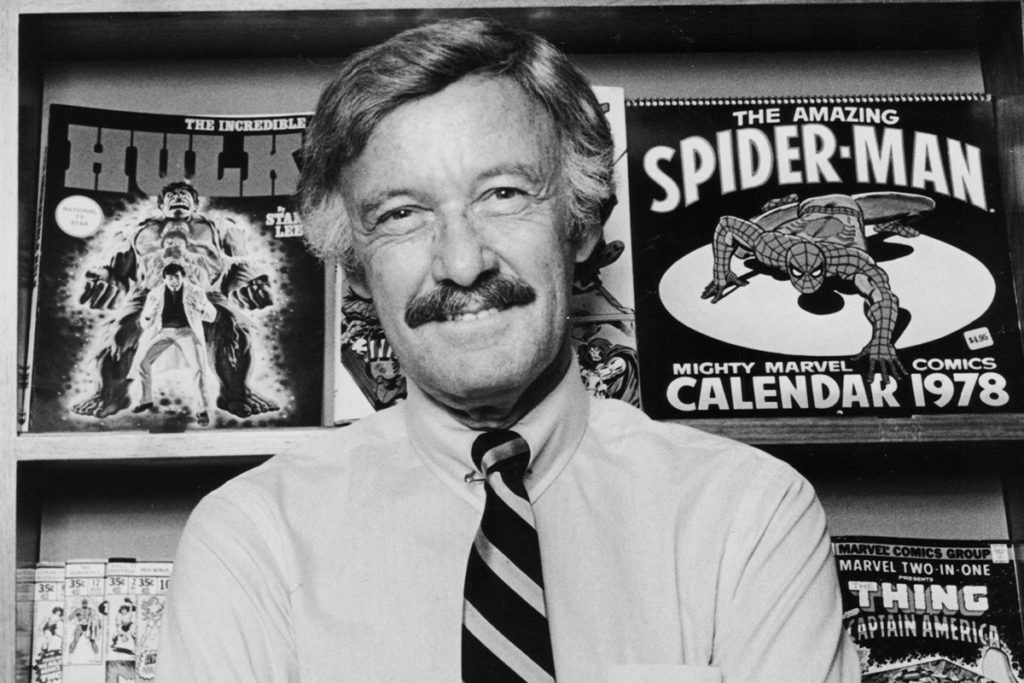
Abraham Riesman’s biography of Marvel comics legend Stan Lee tries to understand the real Stan — born Stanley Martin Lieber — underneath all the myths and stories. Riesman does a great job of unpacking these myths and half-truths, speaking to many people in Lee’s orbit. Lee was the head editor of Marvel during a time of unprecedented creativity (Spider-Man, Black Panther, the Avengers, Thor and more all launched under his tenure), but he spent the rest of his life chasing fame and fortune that eluded him. One key thread throughout “True Believer” is who actually created all the iconic characters; Marvel illustrators (and authors) Jack Kirby and Steve Ditko long challenged Lee’s assertions that he was the “sole” creator. The biography is an engrossing must-read for anyone who has interacted with *anything* Marvel in their life.
And, notably for the Almas, “True Believer” dives into Stan’s complicated relationship with his Jewish identity. As biographer Riesman told Alma, he thought a lot about his own Jewishness as he wrote the biography. “[Stan] did not really care about being a Jew, but he was a Jew. And I do care about it. The stories of our families have gone on for millennia, and then we have to decide what we do with that responsibility.”
Get True Believer: The Rise and Fall of Stan Lee here.
The Best Jewish History Book
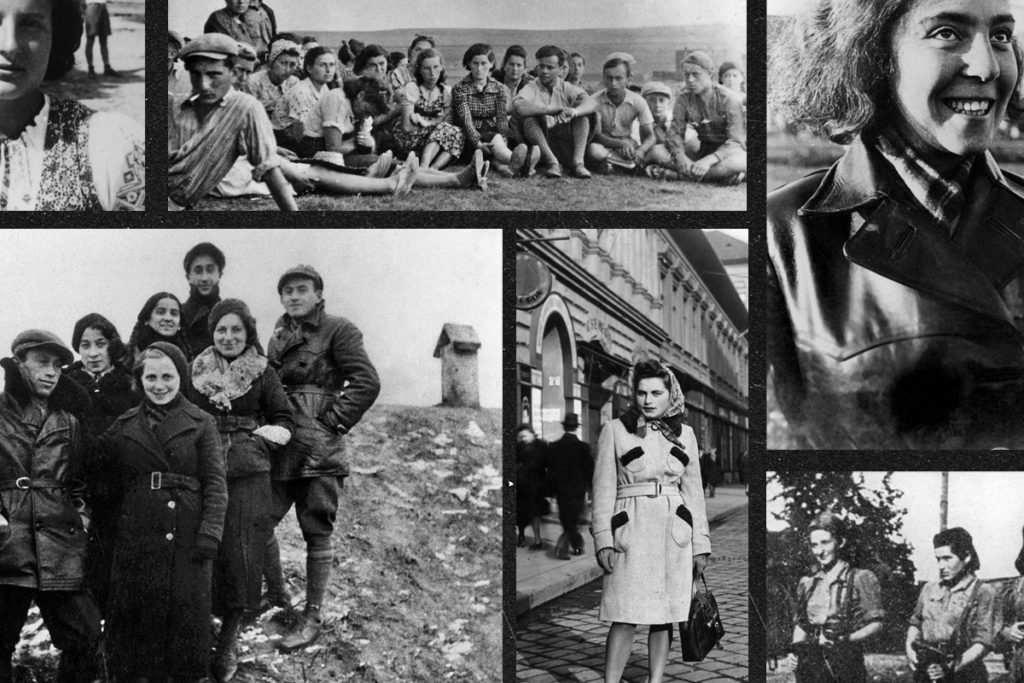
In “The Light of Days: The Untold Story of Women Resistance Fighters in Hitler’s Ghettos,” Judy Batalion tells the story of Jewish women who became resistance fighters. Among the stories she tells are those of armed resistance leader Zivia Lubetkin, who attacked German soldiers as they attempted to round up residents of the Warsaw Ghetto, Renia Kulkielka, a teenaged courier who bought and smuggled stolen weapons, strapping them to her body and hiding them under piles of potatoes, and Vitka Kempner, a 23-year-old who snuck out of the Jewish ghetto in Nazi-occupied Vilna (Vilnus) to bomb a train full of German soldiers and supplies.
There are several reasons why the women’s efforts went unheralded for so long, Batalion explains to Alma. The majority of female resistance fighters died during the war, and inevitably some knowledge of their efforts died with them. And of course, “women are routinely dropped from stories in which they played key roles, their experiences blotted out of history,” she points out. In this case, “some women’s writings were censored to fit political motivations, some women faced blatant indifference, and others were treated with disbelief, accused of making it all up.” We’re so grateful Batalion is writing them into history.
Get The Light of Days: The Untold Story of Women Resistance Fighters in Hitler’s Ghettos here.
The Best Jewish Science Book
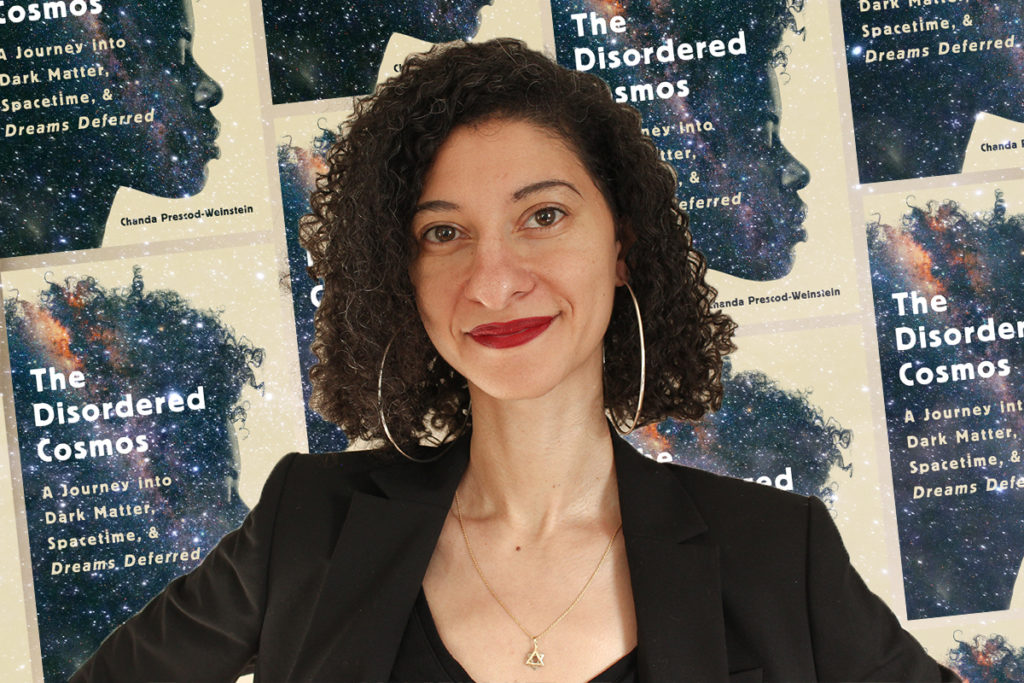
“All of these fights that we’re having right now about children in cages, families in cages, mothers in cages, whoever’s in a cage … while people are in cages, they’re definitely not looking at the night sky. All of our struggles about food, healthcare, secure housing, abolition, the end of incarceration as we know it, all of these things are eventually about being able to look at the night sky,” Dr. Chanda Prescod-Weinstein told Alma. In her book “The Disordered Cosmos: A Journey Into Dark Matter, Spacetime, and Dreams Deferred”, Prescod-Weinstein brings her unique and necessary perspective to science as a Black Jewish scientist writing for a more just world. The book opens and closes with a Hebrew prayer and dives into everything from explaining particle physics to why we shouldn’t use the term “dark matter” to the Maunakea protectors protesting the construction of a massive telescope at the foot of a dormant volcano in Hawai’i. Throughout, she constantly questions how science, and scientists, can be better.
In writing “The Disordered Cosmos,” she says, “I’m thinking about Chanda at age 17. What is the book that would have said to her: Your interest is okay and beautiful, and your dreams are okay and beautiful. The thing that Carl Sagan didn’t do was tell me what a life in science for someone like me would be like, and how to handle that. I don’t know if my book is a particularly good guide on how to handle that. But I hope that my book at least says you can do it.”
Get The Disordered Cosmos: A Journey Into Dark Matter, Spacetime, and Dreams Deferred here.
The Best Jewish Cookbook
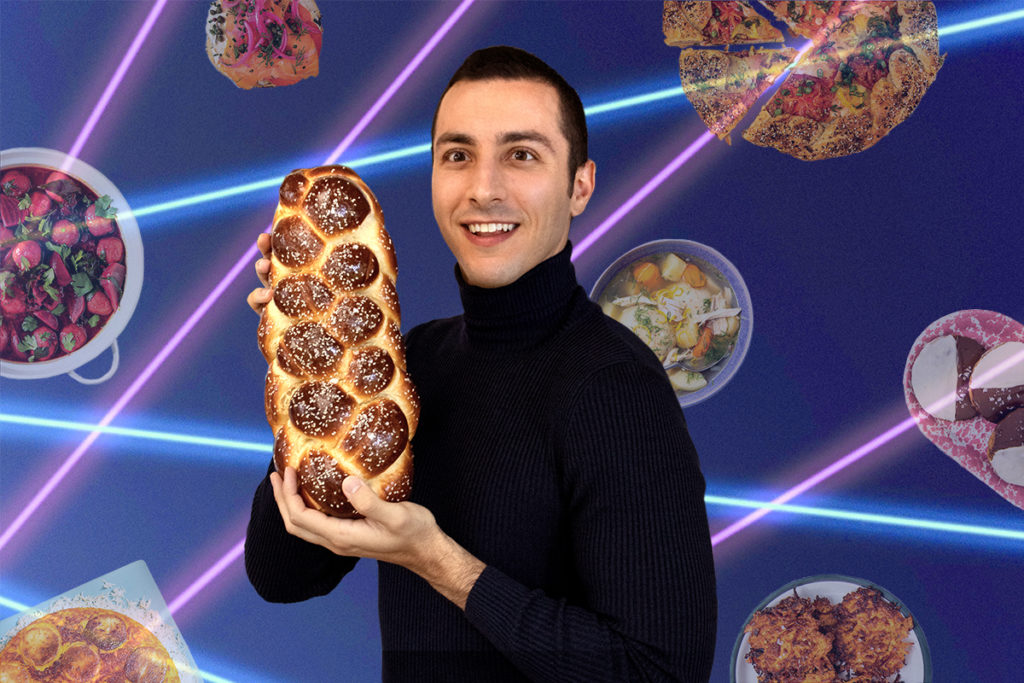
Jake Cohen’s debut cookbook, “Jew-Ish,” is a delightful complement to his delightful social media presence. Subtitled “Reinvented Recipes from a Modern Mensch,” the book is dedicated to Cohen’s husband, Alex, because “this book is nothing short of our love story,” detailing their shared Jewish journey and different Jewish upbringings. Jake is Ashkenazi and Alex is Mizrahi, and along with the delicious recipes — we’re personally obsessed with the chocolate chip black and white cookies — the book explores how they’ve figured out what it means to be Jewish in 2021. Structured around Shabbat dinner, “Jew-Ish” takes its reader through a bevy of foods, with bonus chapters for major Jewish holidays.
“I don’t think people should take food or the way they cook very seriously. They can get a lot out of it — there can be a lot of deepness and meaning to it — but I don’t think that it should be precious,” Cohen told Alma. It’s a cookbook we’ll be using for years to come.
Get Jew-Ish: A Cookbook: Reinvented Recipes from a Modern Mensch here.
Bonus: an acceptance speech from Jake Cohen!
The Best Jewish Illustrated Book
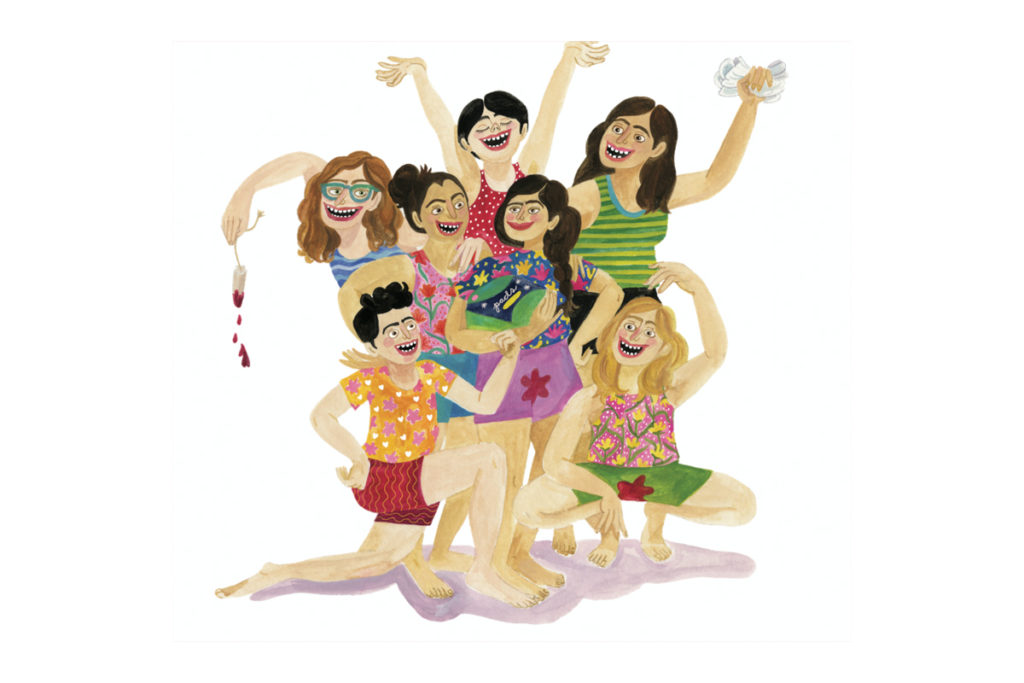
“Cheeky: A Head-To-Toe Memoir” by Ariella Elovic is a powerful look at bodies — particularly, Jewish hairy female bodies — and how we feel about them. The Jewish illustrator, who blogged under @thecheekyblog, is known for creating a space on Instagram to talk about things like bodies and periods and poop. Her book is a natural extension of that work — going from the her head down to her feet and diving into alllll the feelings.
“We just grow up inundated constantly with [messages about] looking a certain way for someone else and never pausing to say, ‘No, I’m good.’ What I hope the most is that people come away from the book inspired or encouraged to either continue or start work to center back in. This is your home, you get to decide what you do with it and what you don’t,” Elovic told Alma.
Get Cheeky: A Head-To-Toe Memoir here.
The Best Jewish Celebrity Book
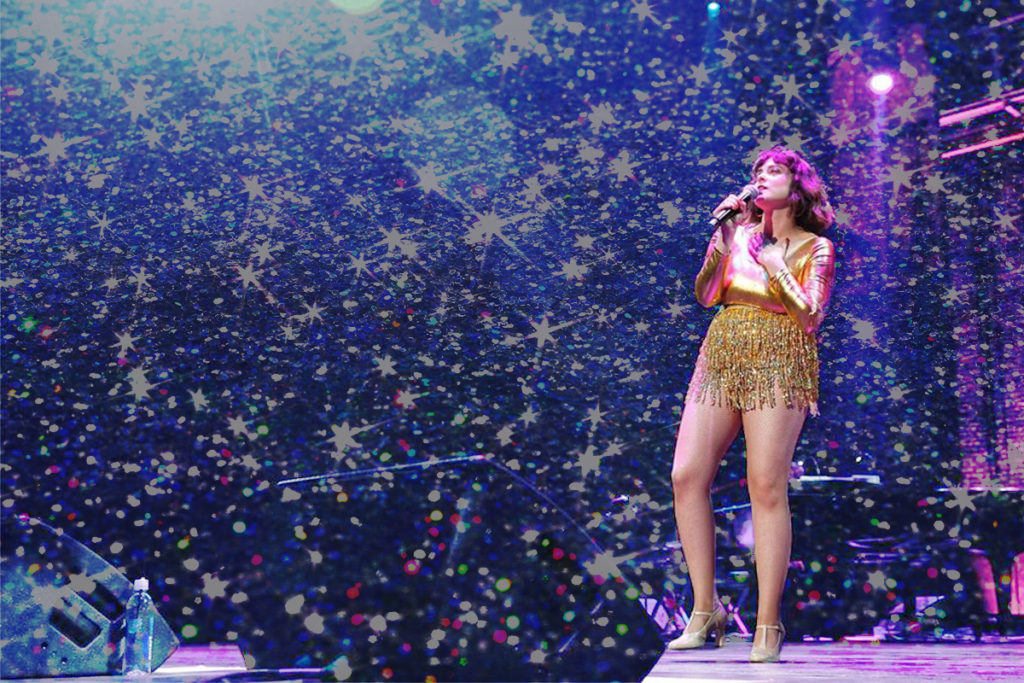
We will literally follow Rachel Bloom anywhere. So when the “Crazy Ex-Girlfriend” co-creator and star released her debut essay collection, “I Want to Be Where the Normal People Are,” we were so excited. And it lived up to the hype. The memoir is a touching and heartfelt collection filled with essays, but not just essays; there’s also a fairytale spoof, an epic poem, Harry Potter fanfiction, an interview between 23-year-old Rachel and 13-year-old Rachel, a fake-real Playbill bio, a musical about her relationship with musicals (that she even recorded for you to listen along to), a realistic LinkedIn profile circa 2010, a breakdown of how she got dirty lyrics past the FCC, and so much more. And, of course, it is filled with incredible Jewish jokes. As she writes, “I grew up in the type of Jewish household in which I didn’t know a word of Hebrew, but I knew EVERY celebrity that had ever said anything anti-Semitic. Our Shabbat prayer was basically, ‘Baruch Atah Adonoi, Jesse Jackson, Vanessa Redgrave, Marlon Brando said ‘kike’ once.'” Whatever Rachel Bloom does is not to be missed — especially her book.
Get I Want to Be Where the Normal People Are here.
Disclosure: This post contains affiliate links, which means we may receive a commission if you click a link and purchase something that we have linked to. While clicking these links won’t cost you any extra money, they will help us keep this site up and running. Thanks!